PhD Students

Chelsea Waters
- Project: Developing and scaling deployment, settlement and monitoring of wild cultured larvae for reef restoration.
- Her project focuses on reseeding degraded reefs using sexually derived larvae from wild spawn slicks is the focus of Chelsea’s thesis, with research objectives focusing on designing, testing and refining the equipment and methods required to optimize the bulk transfer of larvae onto target reef areas from in situ culture ponds.
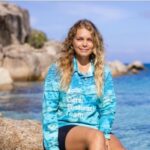
Christina Langley
- Project: Larval treatments during early development to enhance survival and growth of mass larval cultures from wild-coral spawn
- Christina Langley is a PhD student, whose research is focused on increasing coral restoration potential using wild coral spawn slicks reared in floating reef pools for mass larval production.
- Her research aims to understand how collection and rearing conditions at scale can affect production and overall larval quality.
- Christina’s research is part of the Moving Corals Program within the Reef Restoration and Adaptation Program and combines field-based work on the Great Barrier Reef with supplementary laboratory experiments.
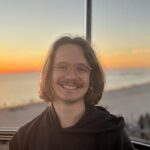
Chris Pine
- Project Title: From Patches to Seascapes: How Seagrass Meadow Configuration Shapes Fish Assemblages and Distributions in Estuaries.
- Chris is a PhD candidate at the University of Sydney specializing in spatial ecology and patch dynamics of fish assemblages across marine ecosystems, with particular expertise in seagrass habitats.
- His research investigates how habitat connectivity, structure, and environmental factors shape juvenile fish communities in temperate seagrass meadows along Australia’s eastern coastline.
- Through the development of spatial models, his work aims to identify priority areas for seagrass conservation and restoration, ultimately enhancing the abundance, diversity, and resilience of juvenile fish communities in these critical marine nurseries.
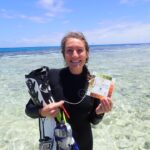
Devin Rowell
- Project: Drivers of juvenile coral survival and implications for reef restoration and recovery
- Is a PhD candidate with UQ and CSIRO interested in bridging the gap between community engagement and ecosystem management to protect and restore our coral reefs.
- Her research aims to answer questions around how different coral sizes, species, and outplanting orientations can influence the survival of juvenile corals in the face of competition and predation.
- She hopes her research will help to better understand the drivers of juvenile coral survival during the early stages of reef recovery and improve the design of restoration strategies to maximise their effectiveness.
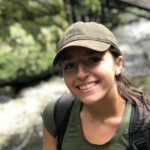
Elizabeth Buccheri
- Project: Critical population thresholds to ensure coral recovery on the Great Barrier Reef
- PhD student focused on understanding some of the fine scale mechanisms that drive and limit the early stages of coral recovery, specifically fertilisation, embryogenesis and larval survival.
- Uses experimental data to parameterise models of complex reproductive processes.
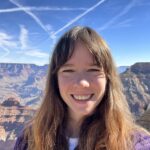
Hannah Westley
- Project: Recovery of below-ground biodiversity and ecosystem functioning in restored saltmarsh
- Hannah is a PhD candidate at UNSW researching the influence of sediment burrowing infauna on sediment functioning in restored saltmarshes.
- Her research aims to understand how various biotic and abiotic factors affect ecosystem recovery using a space-for-time approach and field experiments.
- She hopes that her research will help improve our understanding of saltmarsh restoration trajectories, ideally by incorporating below-ground functional recovery into restoration strategies.
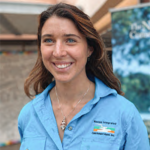
Maddison Brown
- Project: Identification of Coastal Wetland Restoration Opportunities in a UNESCO Biosphere Reserve
- Maddison is a marine ecologist and PhD candidate at The University of Queensland, School of Biological Sciences.
- Her research focuses on coastal wetland restoration opportunities in south-east Queensland using spatial modelling for habitat and restoration suitability.
- She is particularly interested in validating habitat suitability models for threatened species and biodiversity through on-ground field work and site assessment. Target species include the black glossy cockatoo in supratidal forests and the water mouse in mangroves.
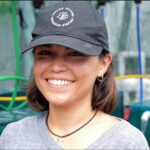
Morane Le Nohaic
- Project: Understand how the Great Barrier Reef’s connectivity can be undermined by climate change.
- Her project focusses on understanding the impacts of ocean warming on coral fecundity and connectivity in the Great Barrier Reef. For this, she uses a combination of methods, including controlled heat-stress experiments on gravid corals, (2) reef flat and reef slope coral fecundity monitoring, and (3) larval connectivity models.
- The overarching aim of her research is to provide key knowledge on reef recovery potential mediated by reef connectivity in present and future climatic contexts for helping reef management decisions.
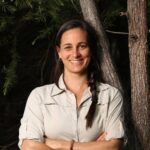
Renee Piccolo
- Project: Spatial modelling of restoration feasibility
- Is a PhD student incorporating feasibility into spatial planning and decision support for coastal restoration.
- Her project aims to understand what factors influence the success or failure of restoration actions.
- She hopes to provide guidance to restoration practitioners and researchers on how to consider multiple feasibility factors when selecting sites for restoration.

Taleatha Pell
- Project: Significance of early-life history processes in overcoming disturbance regimes in coral restoration
- Taleatha is Noongar woman from Whadjuk country (Perth) with family ties to Wardandi in the South-West and Budina in the North-West of WA
- Her research aims to understand how coral early life history processes can aid reef recovery and restoration applications.
- She is interested in coral demography and ecology in the early life stages and capacity building of women and traditional owners for reef monitoring and restoration.
